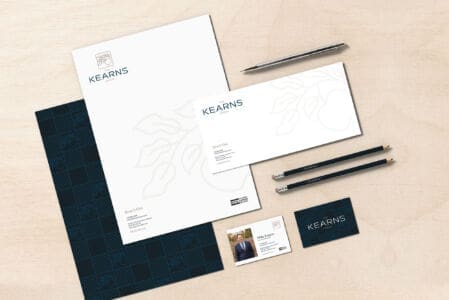When (and When Not) to Use AI in Your Real Estate Content Strategy

Everyone knows that when it comes to producing content, you should always focus on quality over quantity. That means that just because you produce a lot of content, if it isn’t high-quality and doesn’t meet EEAT (you can learn more about EEAT right here), there isn’t much point to writing it at all because you won’t get the results you’re looking for.
And for a lot of agents, that’s where AI comes in as it’s often seen as an easy way to produce content without much work, but is that effective if you’re trying to build a solid, long-term content strategy?
Only if you use it correctly…
There’s no doubt about it, taking the time to put together 1 well-written, high-quality article per month that speaks to your target audience and provides value by answering a question is always going to be more valuable than copy-pasting dozens of articles per month that are copy-pasted from whatever an AI chatbot directly generates.
That’s because, on its own, AI isn’t going to be able to put together a perfectly written, well-optimized article that speaks in your voice directly to your audience.
But that doesn’t mean you should avoid it altogether. AI can still play a role in helping you produce a solid content strategy that gets results, provided you use it specifically and correctly.
Where an AI Chatbot Can Help In Your Content Strategy
The best way to use an AI Chatbot in your content strategy is as your partner, rather than your end-to-end writer.
That means working with an AI Chatbot, rather than having it work directly on its own, in the background, without any assistance from you at all.
For example, when you’re writing content, one of the most difficult parts for most people is simply just getting started when writer’s block sets in, which is where an AI Chatbot can help the most.
In this situation, an AI Chatbot can help you by coming up with general topics and ideas, that are in line with your overall content strategy, of what to write about, or it can help you by producing a general content outline that you can fill in the more specific details, or it can even help produce some of the content for you (providing you’re involved – more on that below).
And using AI that way can help you get past writer’s block and be incredibly helpful when it comes to producing meaningful, high-quality content that your target audience will find useful.
★ Want to learn more about using AI in your real estate marketing strategy? Have a look at these posts:
- Using AI to Build a Personalized Real Estate Marketing Strategy
- Creating a People-Powered, People-First Content Strategy
- Leveraging AI Marketing Automation as Part of Your Inbound Marketing Strategy
Where to Avoid Using an AI Chatbot In Your Content Strategy
If you ask ChatGPT (or some other AI chatbot) to write you a 2000 word blog post about everything you need to know about buying your first home, and then copy-paste it directly into your blog post editor, and click publish (without even reading it thoroughly), you’re taking the wrong approach, and probably won’t see much content success as a result.
In fact, if you take this approach then there’s not much point to having a content strategy in place at all.
That’s because AI just cannot capture your voice, tone, or speak to your target audience that way you would, at least not on it’s own and on its first try.
If you use AI to produce your content, you need to treat it as more of an outline or a starting point, and from there, thoroughly go through it to match your brand’s style, voice, and positioning. That can mean editing a few words here and there, or it can rewriting substantial portions of it; but either way, it won’t be perfect and ready-to-publish when it’s first generated.
You should also review it for accuracy, as in some cases, AI also produces content that’s just plain incorrect, so even if you do use it to plan and create outlines for your content, you should always make sure it’s correct and accurate, or you risk your brand providing inaccurate information that can ruin the trust you’ve built with your audience.
There’s a big misconception that using an AI Chatbot to produce content will be easy, and while it can certainly make things easier, it still needs to help to be able to produce good content you can actually use.
At the end of the day, AI just won’t be able to instantly and on-its-own produce high-quality, well-written content that matches you and your brands voice or overall content strategy, so even if it is part of your content production plan, it still needs a human to help get it to where it’s ready to be published.
And this doesn’t just apply to blog posts, but rather, any content you produce for your real estate marketing strategy, where it’s long form content, MLS descriptions, or even social media captions.
★ While using AI to to generate content completely will likely produce ineffective content that won’t connect with your target audience, it can also affect your SEO strategy. Want to learn more? Have a look at this post called: Does Using AI-Generated Content Negatively Affect Your SEO Strategy?
You and AI, Working Together
Whether it’s to be more efficient, more modern, or both, everyone wants to know more about how to incorporate AI into their marketing strategy, and while it can be tempting to let AI do all the work for you, to see more success, it’s more effective to see AI as your partner, rather than your servant.
Want to improve your content strategy? Download our Content Strategy Guide for Real Estate Agents. It has practical methods on how to plan, implement, market, and audit a successful real estate content strategy that will deliver results as part of your overall inbound marketing strategy.





















